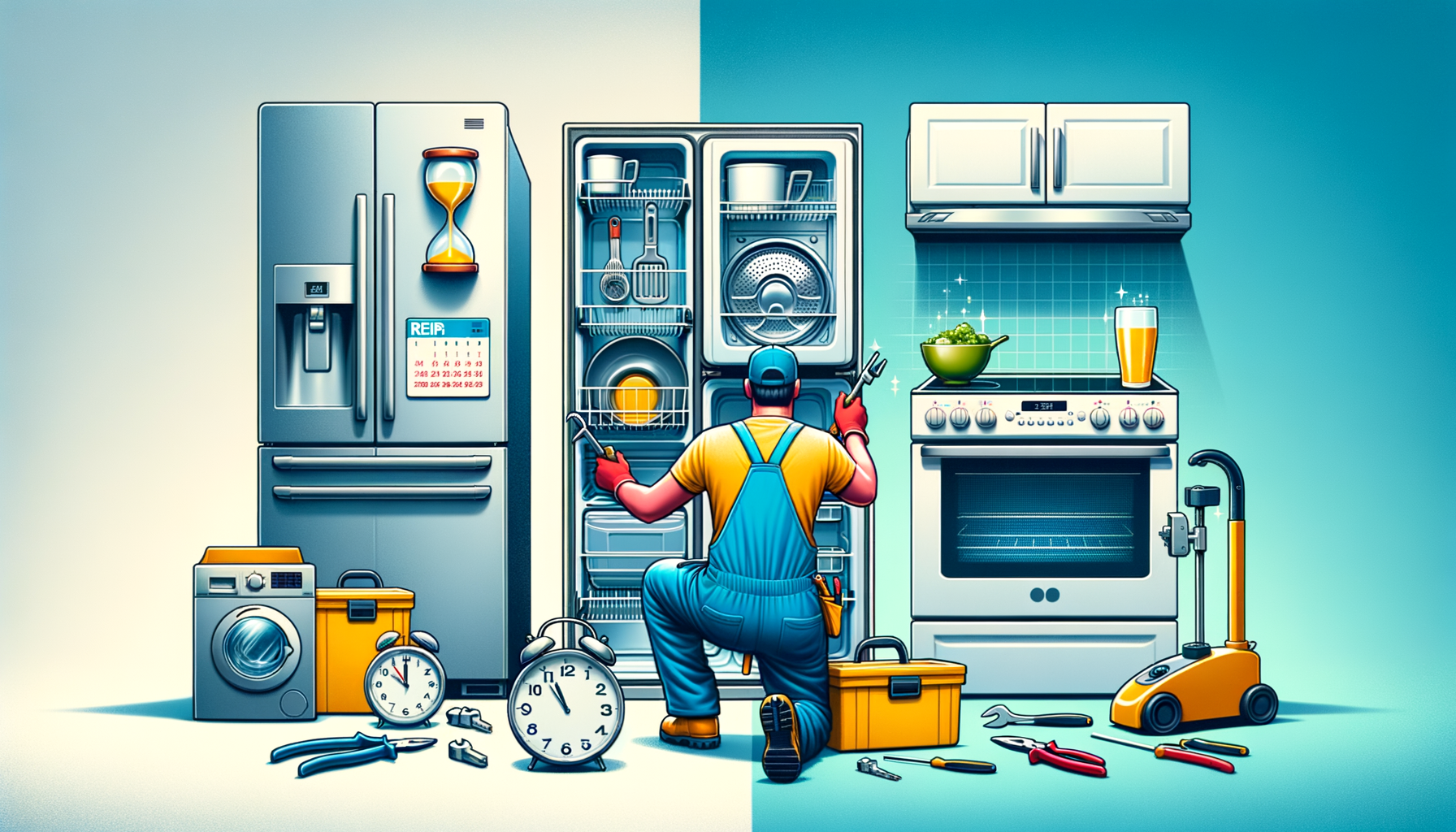
When it comes to the world of home appliances, the conflict between repairing and replacing is as ancient as the devices themselves. The question always comes down to whether to fix a faulty appliance or replace it entirely. Common misconities, such as ‘newer is always better’, or ‘repair is cheaper than replacement,’ often fuel the debate. However, the correct answer changes based on a range of factors, including the appliance’s age, the type and extent of the damage, and the comparative costs of repair and replacement.
Let’s start by exploring how the age of an appliance influences its repair or replace verdict. Many appliances have life expectancies determined by their manufacturers. For instance, a refrigerator usually functions appropriately for about ten to thirteen years, while a microwave lasts for roughly nine to ten years. Washing machines and dryers are frequently reliable for about ten to thirteen years, whereas a furnace might keep you warm for up to eighteen years. If your appliance is nearing the end of its expected lifespan and isn’t working correctly, the chances are high that it might be the time for a replacement.
Just as important though is the type and extent of the fault. Not all appliance problems are created equal; some are catastrophic and others a mere hiccup requiring nothing more than a little tweaking. A damaged motor, cracked drum, or burned-out control panel often spell doom for an appliance, making replacement a better bet. On the other hand, minor issues like faulty switches, clogged filters, or broken knobs may only need a quick repair to be back in business.
Moreover, the 50% rule can serve as an excellent guiding principle when caught in the repair vs. replace dilemma. If the cost of fixing the appliance goes beyond half the price of purchasing a new one, consider replacing it. It’s also crucial to think about future costs. A machine that requires frequent repairs may stack up heavy maintenance costs in the long run, slowly dwarfing the one-time expense of an upgrade. In such a scenario, a replacement would be the economically shrewder decision.
Now let’s examine the particular case for each home appliance, digging more profound into when it’s best to repair and when to replace.
First up, the fridge, the heart of your kitchen. Getting a new refrigerator can leave you with lighter pockets, with prices ranging from $900 to $8,000. Here, even if the repair costs reach the 50% mark, you might still want to opt for fixing it, given the appliance’s high ticket value. However, if your fridge is more than ten years old and requires significant repairs, then replacing might be a better option.
Washing machines and dryers are often lumped together, but they behave differently when malfunctions rear their head. Washers, especially front-load ones, are notorious for costly repairs due to their complicated mechanics. In contrast, the simpler design of dryers can often mean less expensive fixes. Suppose your machine is nearing that ten to thirteen-year age bracket. In that case, a replacement may make more sense, especially if the washer is also performing inefficiently or demonstrating signs of wearing.
Moving on to the HVAC systems, these are slightly trickier. On average, you can expect a total lifespan of fifteen to eighteen years out of your HVAC. However, all systems aren’t created equal, and each element of HVAC, including heating, ventilation, or air conditioning, may fail individually. Here, age is a critical factor. If your HVAC system is less than ten years old, a repair may be more cost-effective. But if it’s over fifteen years old, it might be high time to look at replacements.
Finally, when it comes to ovens and ranges, repairs should be your go-to move unless the appliance is more than fifteen years old. A repair can usually rectify most common range problems quickly and cost-effectively.
Remember, though, every situation is unique, and these guidelines aren’t one-size-fits-all. With advancements in technology, progressing to a more efficient, feature-rich appliance could save you money in the long run through lower running costs, even if your existing one falls into the ‘repairable’ category.
Another important thing to keep in mind is warranties. Should your appliance have a current valid warranty, repairs could cost you nothing out of pocket. On the other hand, new appliances usually come with fresh warranties, offering an added safety net.
In conclusion, the decision to repair or replace a home appliance is a delicate balancing act, requiring one to consider multiple factors. But, with the right information and a bit of savvy, you can make the decision that is best for both your lifestyle and your bank balance. Always remember the age, type of damage, repair cost vs. replacement cost, and even the potential savings a more efficient model could offer. After all, it’s not just about immediate costs, but potential future ones too.

